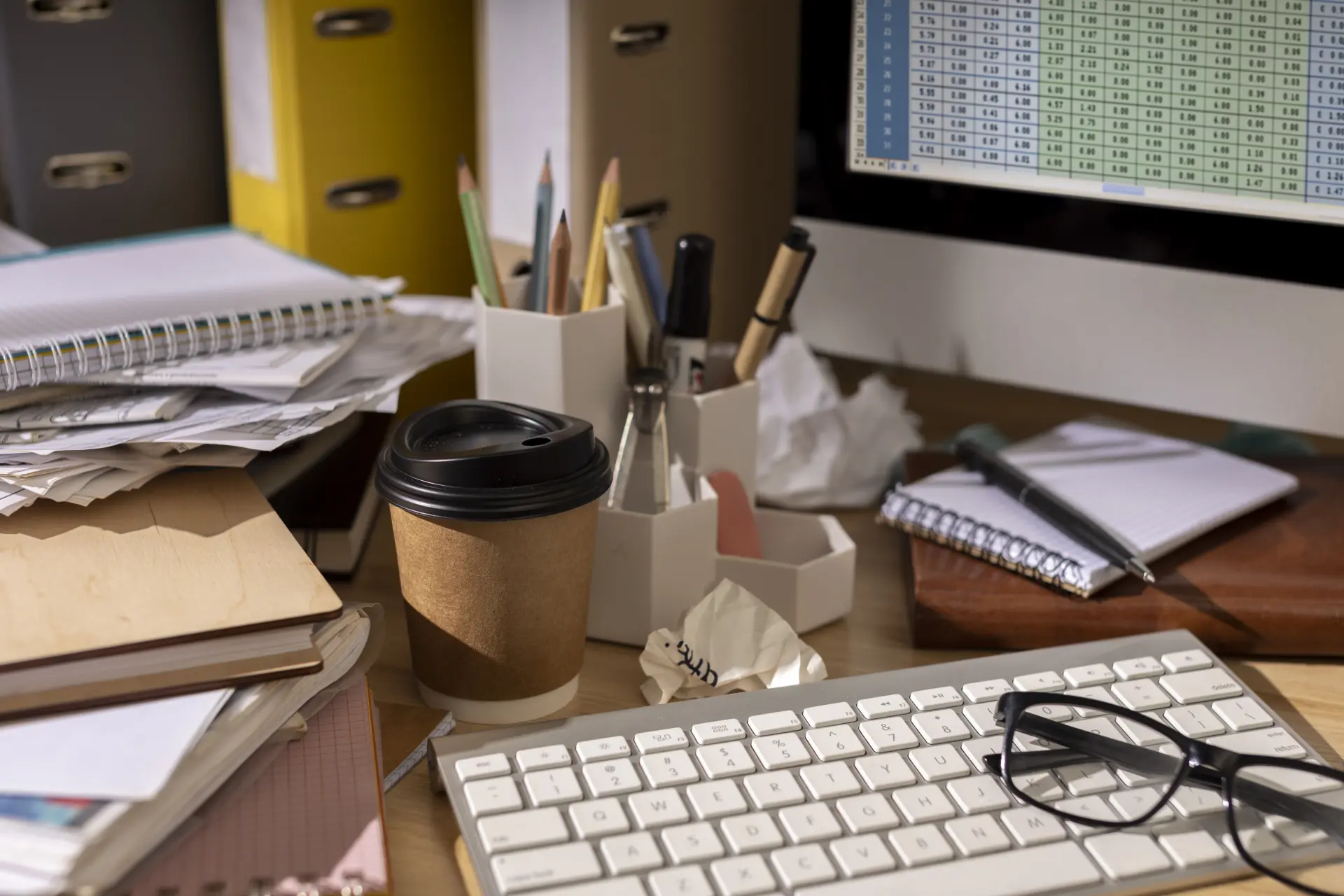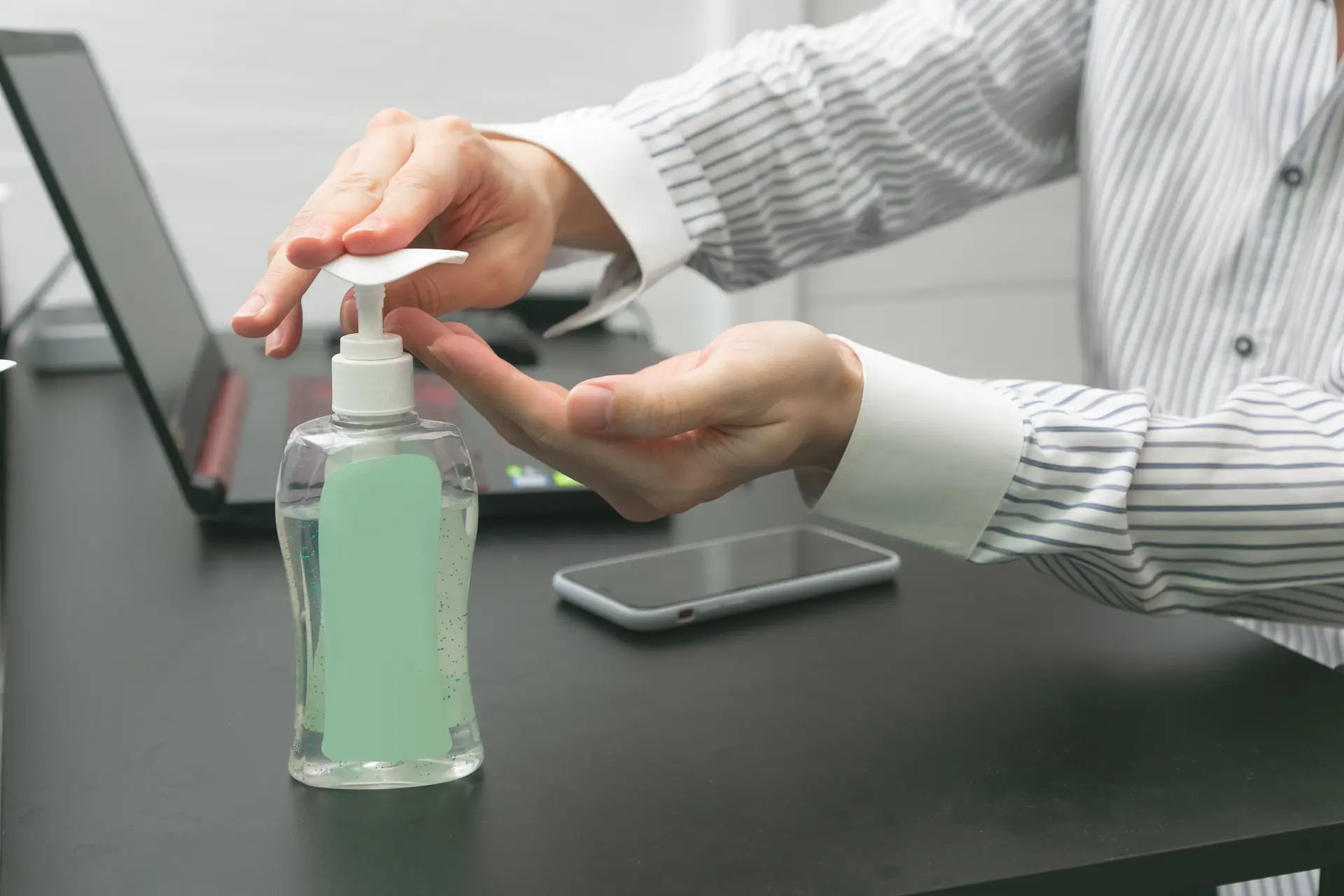This article looks at infection control in the workplace. Our guide highlights the importance of proper hygiene practices and regular cleaning to minimise the risk of illness and promote a healthier workplace.
Why Infection Control Cleaning Matters for Businesses
Infection control cleaning protects people and keeps work going. When spaces are clean, staff are less likely to get sick. Fewer sick days mean better service and less pressure on teams. Healthy staff are more focused and productive, which helps the whole business.
Customers and visitors notice clean spaces. A tidy, fresh site builds trust and shows you care about their safety. This can help you win new work and keep loyal clients. If people feel unsure about hygiene, they may choose a competitor instead.
Good cleaning helps prevent outbreaks. Germs spread fast on shared surfaces like desks, door handles and phones. Regular cleaning and disinfection break the chain of spread. This keeps day-to-day operations steady and reduces the risk of sudden closures.
There are legal and compliance duties in many sectors. Clear cleaning plans, trained staff and simple records help you meet these rules. If there is an inspection, you can show what was cleaned, when it was done and which products were used. This reduces the risk of fines and other actions.
Safe cleaning protects assets. Using the right products and methods prevents damage to floors, fixtures and equipment. Well-cared-for spaces cost less to maintain and last longer. This saves money over time and reduces waste.
Strong hygiene supports staff morale. People feel better working in a clean, safe place. It shows respect for your team and their well-being. When everyone understands the plan and has the right tools, standards stay high.
Common Workplace Areas That Need Regular Cleaning
Infection control cleaning protects people and keeps work going. When spaces are clean, staff are less likely to get sick. Fewer sick days mean better service and less pressure on teams. Healthy staff are more focused and productive, which helps the whole business.
Customers and visitors notice clean spaces. A tidy, fresh site builds trust and shows you care about their safety. This can help you win new work and keep loyal clients. If people feel unsure about hygiene, they may choose a competitor instead.
Good cleaning helps prevent outbreaks. Germs spread fast on shared surfaces like desks, door handles and phones. Regular cleaning and disinfection break the chain of spread. This keeps day-to-day operations steady and reduces the risk of sudden closures.
There are legal and compliance duties in many sectors. Clear cleaning plans, trained staff and simple records help you meet these rules. If there is an inspection, you can show what was cleaned, when it was done and which products were used. This reduces the risk of fines and other actions.
Safe cleaning protects assets. Using the right products and methods prevents damage to floors, fixtures and equipment. Well-cared-for spaces cost less to maintain and last longer. This saves money over time and reduces waste.
Strong hygiene is great for supporting staff morale. People feel better working in a clean, safe place. It shows you have plenty of respect for your team and their well-being. When everyone understands the plan and has the right tools, standards stay high.

Reducing Absenteeism Through Effective Cleaning
When germs are removed from shared surfaces, staff are less likely to catch and pass on illness. Fewer infections mean that workers will have fewer sick days and more stable teams.
Focus on high touch points. Clean and disinfect door handles, lift buttons, taps, desks, keyboards, phones, and touch screens many times a day. Add extra cleans during busy periods such as the start of the day, lunch and shift changeovers.
Support hand hygiene at every step. Be sure to keep your sinks consistently stocked with soap and paper towels. Place hand sanitiser at entrances, near meeting rooms and in shared areas. Simple posters by sinks remind people to wash for long enough to remove germs.
Use the right products and follow contact times. Choose disinfectants that are suitable for the germs you want to control. Leave surfaces wet for the time stated on the label so the product can work. Never mix chemicals and store them safely.
Prevent cross-contamination. Colour code cloths and mops for toilets, kitchens and general areas. Change your cloths often, wash reusable items after each task and let tools dry fully. Clean equipment like printers, trolleys and headsets between users.
Keep the air fresh. Open windows where safe to do so or use mechanical ventilation. Replace or clean filters on schedule. Better airflow helps reduce the build-up of germs indoors and lowers the chance of spread.
Plan for peaks in illness. Have a simple step-up routine for cold and flu season. Increase the frequency of cleaning, widen the list of high-touch points and add extra checks. Tell staff what is changing and why, so everyone follows the plans.
Train staff and check practice. Give clear induction training and regular refreshers. Use short daily briefings and simple checklists to keep standards high. Record what was cleaned, when and by whom. Good records help track trends and prove the routine is being followed. Work with professional cleaners where helpful. They can create a suitable schedule that fits your site, manage supplies and carry out thorough checks.
Building a Safer and Healthier Work Environment
Safety starts with clear goals. Leaders set the standard and everyone follows simple, written rules.
- Check risks across the site. List hotspot areas and plan what to clean, how often and who is responsible.
- Support hand hygiene. Keep sinks stocked and place sanitiser at entrances and shared spaces.
- Improve airflow. Open windows where safe or use ventilation. Keep vents clear and change filters on time.
- Design for easy cleaning. Reduce clutter, use wipeable surfaces and empty covered bins often.
- Use the right tools. Follow product labels, colour code cloths and mops and store chemicals safely.
- Train people well. Give short refreshers, use checklists and make sure new starters know the plan.
- Encourage reporting. Make it easy to flag spills, low stock and broken items. Fix issues quickly.
- Track results and improve. Keep brief records, review trends and update the plan as risks change.

The Role of Employees in Maintaining Clean Spaces
Always keep personal items clean. Wipe your phone, headset, ID badge and water bottle daily. Store bags off the floor to stop dirt from spreading.
Follow hot desk rules. Clear the desk when you leave. Wipe the chair arms, keyboard, mouse and screen bezel before and after use. Return wipes and cloths to the right station.
Handle food safely. Label and date leftovers, seal containers and keep raw and cooked food apart. Wipe fridge handles, shelves and the microwave after use. Empty old items every Friday, or every mid-week if you have a larger workspace.
Act fast on spills. Use the spill kit, place a wet floor sign and report any stains that need a deep clean. Do not leave paper towels on the floor or in sinks.
Use cleaning tools correctly. Choose the right microfibre cloth for the area, fold it to use clean sides and change it when soiled. Let your cloths and mops dry fully to stop germs growing.
Protect shared tech. Clean touch screens, card machines, meeting room tablets and handsets between users with suitable wipes. Do not spray liquid directly on electronics.
Keep air moving. Do not block vents with boxes or coats. Close meeting rooms after use so the system can refresh the air. Open windows only where it is safe and agreed.
Manage your waste well. Tie the bin bags when three-quarters full and replace the liner. Rinse recycling if required and keep lids closed. Help with the end-of-day reset. Clear cups, wipe tables, push in chairs and leave floors free of clutter. This makes the nightly cleaning much faster and more effective.
One 4 All Services LTD is offers professional office cleaning in Halifax, Bradford, Leeds and surrounding area clients the best quality cleaning services available. Our team of cleaners are highly qualified and experienced in the art of deep cleaning for numerous residential homes and company establishment buildings.



